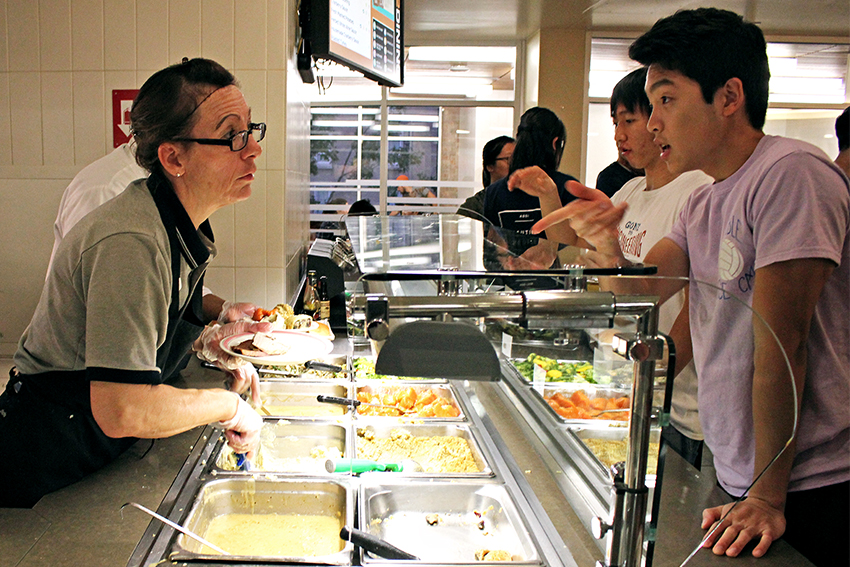Many students work part-time at UT dining halls. Some work to keep their loans down and some work for their monthly grocery shopping. The basic student assistant position — an attractive name for its non-student equivalent, food prep — pays only $8.25 per hour as a starting salary, compared to their non-student counterpart who earn $11.01 per hour.
Many students don’t think twice about this disparity. Students don’t see it because they are being fooled into thinking that they are getting a good paying job for the amount of experience they have. Students might also think, as advertised by DHFS, that they will get to an opportunity to “enhance personal growth.” But neither of them are just reasons for paying students less money. The food prep jobs are very basic, requiring almost no experience and there is little to learn in them.
The concept of the society that college students are kids and have menial issues compared to the “real adults” does not help anybody. In 2016, 70 percent students ended up with loans after graduating, averaging $37,172. Additionally, the competition in the job market is ever increasing, and there are teachers that aim to have a certain amount of students in each grader letter — these are real, adult problems. If a student works 15 hours a week, they could make about $750 extra each semester. That would reduce their loans by $6000 in a four year graduation — that is a huge difference.
According to Melanie Grice, Director of Human Resources, these salaries are set by the University and human resources together and said that students get paid less because they get more benefits than their non-students counterpart.
“We have a lot of flexibility, there is a lot of benefits for the student positions and great opportunities for students employees to join our team with little to no experience,” Grice said. The job helps them “gain valuable skills that they can take with them once they graduate.”
As a former student assistant at Kinsolving Dining Hall, I can vouch that students had flexibility in scheduling and that it was a friendly environment for both student and non-student employees. But it doesn’t add much to your skillset and there aren’t any opportunities like one would get by working at any education related job.
An increase in salary will attract more and better students that would benefit DHFS as they are looking for students assistants all year long. Motivated students improve performance and increase fiscal turnout which DHFS can invest in the students assistants again so that they are not hiring fewer people. Moreover, any food place on or near campus probably earns enough to increase students salary without having any negative impact on anyone.
Not many people, including the students, are seeing this inequality. Students are selling themselves short because of the societal concept that it is not a big deal to pay young ones a little less. Students deserve higher pay if not equal to their non-student counterparts, because having flexibility in choosing hours does not make a $750 difference.
Batra is a computer science and rhetoric and writing junior from New Delhi, India. She is a columnist.
Correction: April 20, 2017
Due to an editing error, a column about pay disparities between dining hall workers on campus incorrectly stated the wage of non-student employees in UT's dining halls. It is $11.01 per hour, not $10.06 per hour.





















